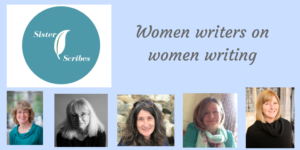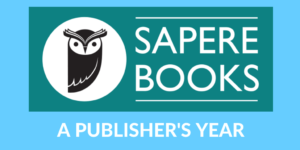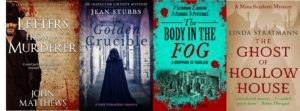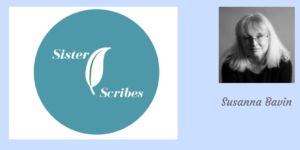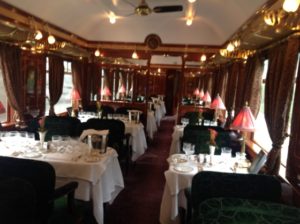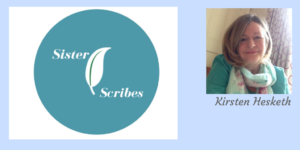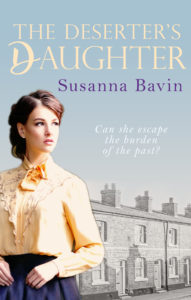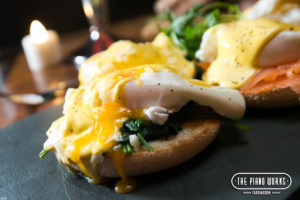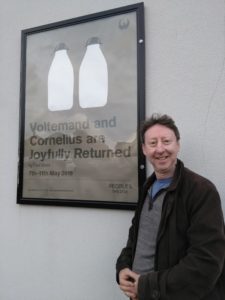
Paul Vates
Such a thrilling time – Dr Kathleen Thompson, Frost Magazine’s medical correspondent, and I travelled to Newcastle to see Voltemand and Cornelius are joyfully returned, a play ‘wot Paul Vates, our drama critic and professional actor, wrote’ and entered for the People’s Play Award which, hurrah, hurrah won.
It was a stunning first night performance with all the ingredients of a prize winning play in evidence. Humour, underpinned by a darker belly, all imbued with tension and a tear or two. Oh, Paul Vates, what a triumph of acting, stage design, lighting and sound, the distant rat – a – tat of the machine guns was particularly evocative.
Frost Magazine asked him his thoughts on such a great outcome.
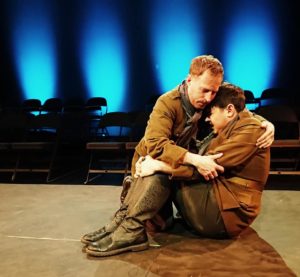
Image courtesy of Steve Hewitt
‘It was thrilling to see these characters come to life, that have for so long have only existed in my head. Artistically, was I pleased with the company’s choices of staging/casting/direction? Well, overall it was ‘different’. I fully accept that the play’s performances will never quite match the images I have for it, but should (touch wood) there be future performances, my joy, like this run, is in seeing how different creatives interpret the piece.
I did love watching it, revelling in the audience’s laughter and tears. One lady, afterwards, came up to me and said she found it ‘interesting’. I jokingly said ‘Oh, can’t you find a better word? Interesting is like saying it’s nice.’ She thought for a moment, then said ‘It’s fucked me up! My mind is everywhere, full of questions.’ That’s more like it…
And now to Dr Kathleen Thompson, Frost Magazine correspondent and author of From Both Ends of the Stethoscope: Getting through breast cancer – by a doctor who knows, who asks, Competitions? Are they worth it?
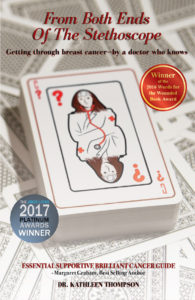
I was so excited that our Theatre Critic, Paul Yates, had won the prestigious People’s Play Award, for Voltemand And Cornelius Are Joyfully Returned and couldn’t wait to add my twopennyworth when Margaret Graham, our editor asked me to relate my own competition experience.
Always happy to talk about, well, me, here we go. Frankly, the only cons are the effort of sending off the competition entry. The pros are numerous.
First, some background, when I developed breast cancer, even as a doctor I needed to absorb copious facts pronto – not easy when in a state of shock. You need to make choices about your treatment; sometimes to speak out if things are going wrong with your care; you have to pick out the truth from fake news ‘facts’ and understand how life style can affect your chance of long-term survival. So I wrote an easy-to-read book to guide people through what they needed to know.
A great idea but did I achieved my aim? And how could potential readers know my book was worth reading at a difficult time?
Nowadays social media experts are king. The quality of their book or product may not be great, but they know how to disseminate and persuade, meaning people will favour their item over others. So how do you raise awareness of your product?
Well a competition can help. Judges are independent experts and a win is validation of quality. The prize itself may include further publicity, and a judge may be so impressed that they want to take your work further. You should feature any wins on your book cover, as a visual endorsement for potential readers, as I did.
I was proud to win first prize in the Words for the Wounded book award in 2016. This charity helps war veterans in a very personal and considered way. The founders are big names in the writing world, and have access to top-notch literary judges, including best-selling authors, publishers, editors and agents. What better way to get your book in front of influential people, and guess what – they have to read it.
I was delighted to win the Janey Loves Platinum Award in 2017. Radio 2’s Janey Lee Grace has a special interest in natural, eco, and organic products and services. Her annual awards promote products and books which help people. The judging panel includes Zoe Ball, Carrie Grant and of course Janey herself. It was great to meet other winners and the judges at the award ceremony and I was thrilled when Janey commented very positively on my book.
Winning these awards reassured me that my book achieved what I worked for – confirming that it was well written and helpful, and should be out there. If you have written a book, or play, or have an innovative product I would recommend competitions such as these – they are fun, provide validation and help promote your product.
Dr K Thompson, author of From Both Ends of the Stethoscope: Getting through breast cancer – by a doctor who knows
http://www.amazon.co.uk/dp/B01A7DM42Q http://www.amazon.com/dp/B01A7DM42Q http://faitobooks.co.uk
Jane Cable, Frost Magazine’s contributing editor, who won the inaugural Words for the Wounded Award talks of a different competition
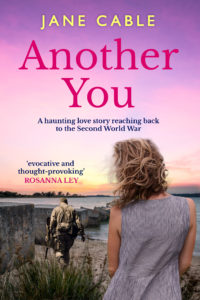
During the filming of the final of the Alan Titchmarsh Show’s People’s Novelist Competition I remember looking around the studio and thinking ‘enjoy this – it might be as good as it gets’. In terms of media profile I was probably right, but having reached the final and therefore being able to call on a cover quote from Jeffery Archer made all the difference to the level of interest when I self published the book two years later.
But the most important lesson from the whole experience was another of the judges, Sophie Hannah, taking me to one side and telling me although I had a great authorial voice the book needed a great deal of work. Up until that point I was completely untutored and I thought it didn’t matter – but it did, and because of those very special few words I’ve been able to up my game as a writer considerably.
Another You, by Jane Cable published in June but available for pre-order.
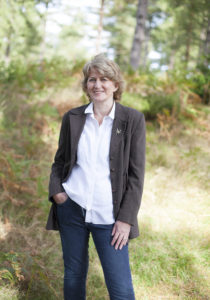
Tracy Baines one of our favourite magazine short story writers and book reviewer for Frost Magazine also comments.
Being placed anywhere in a competition gives you a boost. It’s not your mum and dad, granny or best friend telling you that it’s good; it could be an industry professional, a published author or someone of influence that has validated your work.
The first writing competition I entered was one run by Carole Mathews in conjunction with Ford cars. The winner got the use of a Ford Fiesta (I think it was) for six months and the runners up received a collection of Carole Mathews books. I’ll never forget the day the box of books arrived, along with a card and a lovely letter from Carole. It was my first success with a short story.
Sales to magazines soon followed. A couple of years later I was one of six finalists for the Daily Mail Opening of a Novel competition. I won book tokens (oh joy!) but more importantly was invited to London for a winners’ lunch. We met at the HQ of DM and then went to lunch with Fay Weldon, James Buchan and Deborah Moggach. There were also editors and agents present and it was a chance to mix with industry professionals and realise they didn’t have three heads and scales. It was a networker’s dream and it was a massive boost to my confidence. I went home with a handful of business cards, and invitations to send my manuscript.
Comps are great because they give you many things – most importantly a deadline. They also provide a chance to hone your market knowledge. All comps have different judges, genres and audiences, they may even have a given theme. If you do your homework you can up your chances. These things are important to focus on when it comes to writing novels- you must know your audience and work to deadline.
It’s been great to have on my CV and it’s a way of catching the eye of agents and editors. Your writing must be of a certain standard to get placed.
Some people balk at paying entrance fees but if they were playing tennis, golf or doing a craft they would have to pay out for equipment, clothing etc. I’d say give yourself a budget of £50 – £100 per year (whatever you can afford) and use it to enter competitions. You are investing in your career and you’re worth it. There are also plenty of free comps to enter, so there’s no excuse.
If you win you can truthfully put that you are a prizewinning author on your website. Ok, so it might not be the Booker or the Whitbread but it’s a prize all the same.
Tracy’s debut saga will be published early next year by Ebury.
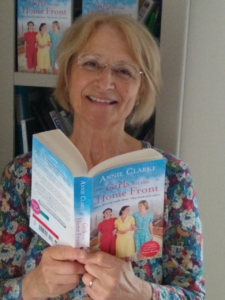
So there we have it. These illustrious writers have shared their experiences with you, and I, Margaret Graham/Milly Adams/Annie Clarke (who am I – who knows) endorse their hurrahs for the value of competitions..
When I was a green writer, working away on the kitchen table, though I still work on the very same table a great many years, and books later, I entered the Constable/North West Arts novel award. I wasn’t first, second or third, but I was one of the 22 best entries. I decided I was fourth, so plodded on. Finally that book was taken by my lovely agent, who saw the competition result on my CV, and had a look at my tatty, cut and pasted manuscript typed up on my Olivetti portable job, without a button for the O. She sold it to Heinemann. So so thrilling. Later, Barry Unsworth who won the Booker twice, reviewed it generously and kindly, and also made it his business to find out my position in the best entries.
Dear readers, far from being fourth, I was in fact, twenty second. So I nipped in just before the gate closed. But crikey, it was important to my confidence, and to those who received my appallingly presented manuscript. How could I? But I did.
My latest, Girls on the Home Front, written under the name of Annie Clarke, is published by Arrow next week.
The unanimous verdict is, enter, keep entering, to be placed even at number 22, it raises you above the parapet.
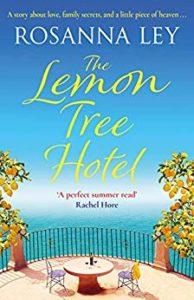 By way of setting, Rosanna Ley’s The Lemon Tree Hotel was a complete contrast. Rosanna is one of my favourite authors so this book was always going to be a pleasure. The story wraps itself around the lives of four Italian women; a grandmother, mother, daughter and close family friend, and although there are secrets and love and a few surprises along the way, it is the bonds that unite – and divide – them, which give the story its impetus.
By way of setting, Rosanna Ley’s The Lemon Tree Hotel was a complete contrast. Rosanna is one of my favourite authors so this book was always going to be a pleasure. The story wraps itself around the lives of four Italian women; a grandmother, mother, daughter and close family friend, and although there are secrets and love and a few surprises along the way, it is the bonds that unite – and divide – them, which give the story its impetus.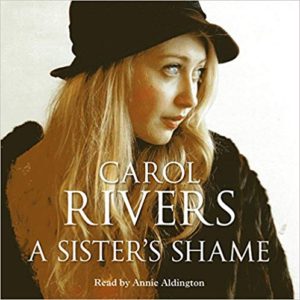 With A Sister’s Shame Carol Rivers has constructed a dramatic and involving plot in a detailed and atmospheric setting. There is an undercurrent of menace throughout and my fingers itched to give Vesta a good shake as, blinded by love and ambition, she threw herself headlong into the new life everyone warned her against.
With A Sister’s Shame Carol Rivers has constructed a dramatic and involving plot in a detailed and atmospheric setting. There is an undercurrent of menace throughout and my fingers itched to give Vesta a good shake as, blinded by love and ambition, she threw herself headlong into the new life everyone warned her against.
